
Solved Verify that the given differential equation is not
Best answer We are given with an equation sin2y + cos (xy) = k, we have to find [Math Processing Error] d y d x at x = 1, y = [Math Processing Error] π 4 by using the given equation, so by differentiating the equation on both sides with respect to x, we get,

[最新] y'=sin(x y) cos(x y) 508659(xdyydx)y sin(y/x)=(ydx+xdy)x cos(y/x)
The following (particularly the first of the three below) are called "Pythagorean" identities. sin 2 ( t) + cos 2 ( t) = 1. tan 2 ( t) + 1 = sec 2 ( t) 1 + cot 2 ( t) = csc 2 ( t) Advertisement. Note that the three identities above all involve squaring and the number 1. You can see the Pythagorean-Thereom relationship clearly if you consider.
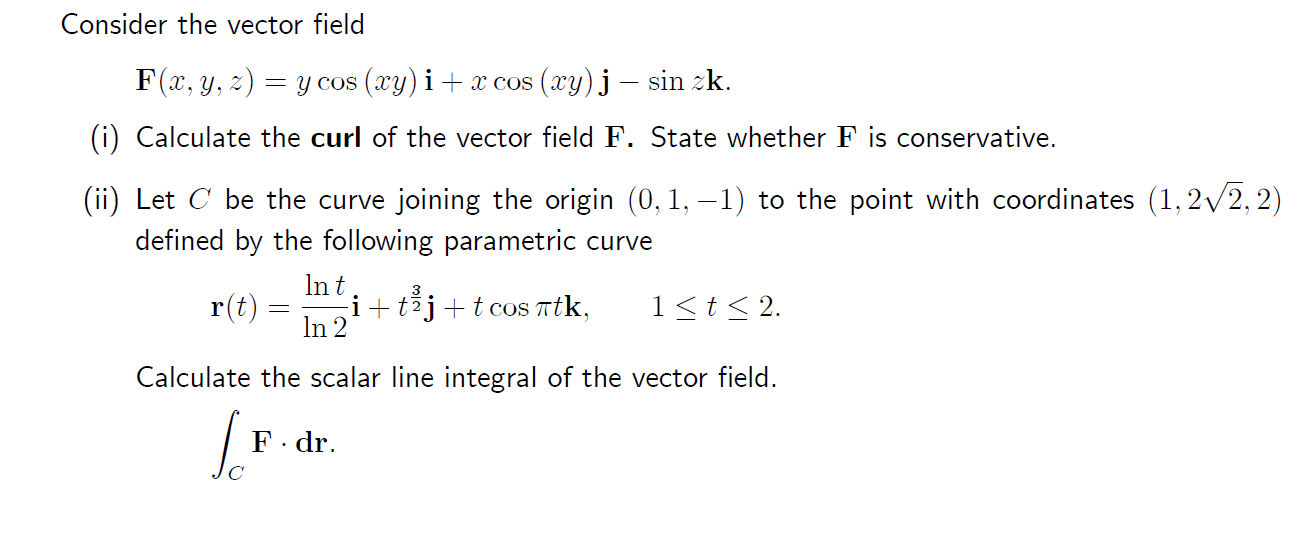
Solved Consider the vector field F(x, y, z) = y cos (xy) i +
Solve Solve for k k = cos(xy) + (sin(y))2 Quiz Trigonometry sin2y +cosxy = k Videos 03:27 Evaluar expresiones con dos variables: fracciones y decimales Khan Academy 06:27 Solving Quadratic Equations by Factoring 1 Khan Academy Evaluar expresiones con variables: problemas verbales (artículo) | Khan Academy khanacademy.org 05:38

cos(x+y).cos(xy)=cos^2ysin^2x Brainly.in
Solution Given, sin2y+cos xy =k Differentiating both sides w.r.t. x, we get d dx(sin2y+cos xy =k) = d dx(k) ⇒ d dx(sin2y)+ d dx(cos xy)= 0 2sin y cos ydy dx+(−sin xy) d dx(xy) =0 (U sing product rule d dx(f(g(x))) =f (x) d dxg(x)) ⇒ sin 2ydy dx−sin xy(xdy dx+y.1) =0 (∵ sin 2x= 2sin x.cos x)
How to solve zxp + yzq = xy Quora
Trigonometry Examples Popular Problems Trigonometry Expand the Trigonometric Expression sin (2y) sin(2y) sin ( 2 y) Apply the sine double - angle identity. 2sin(y)cos(y) 2 sin ( y) cos ( y)

Find `(dy)/(dx)` in the following `sin^2x+cos^2y=1`... YouTube
`sin^(2)y + cos xy = k` Differentiate both sides w.r.t. x ` 2sin y cos y (dy)/(dx) + (-sin xy) (d)/(dx)(xy) =0` `rArr sin 2y (dy)/(dx)-sin xy(x(dy)/(dx)+ y .1)=0`

Solved (2) Solve the following initial value problems (6
Join Teachoo Black. Ex 5.3, 7 Find 𝑑𝑦/𝑑𝑥 in, sin2 𝑦 +cos 𝑥𝑦 =𝜋 sin2 𝑦 +cos 𝑥𝑦 =𝜋 Differentiating both sides 𝑤.𝑟.𝑡.𝑥 . (𝑑 (sin2 𝑦 + cos 𝑥𝑦))/𝑑𝑥 = (𝑑 (𝜋))/𝑑𝑥 (𝑑 (sin2 𝑦))/𝑑𝑥 + (𝑑 (cos〖 𝑥〗 𝑦))/𝑑𝑥= 0 Calculating Derivative of.

Q25 If cos(xy)=k, where is a constant & xy≠nπ, n∈z, then dy/dx is YouTube
Solution Verified by Toppr sin2y+cosxy =k 2sinycosydy dx+(−sinxy)(y+xdy dx)= 0 Put y = π 4,x = 1 2× 1 √2× 1 √2dy dx− 1 √2(π 4+ dy dx) = 0 dy dx− 1 √2 dy dx = π 4√2 dy dx = π 4(√2−1) Was this answer helpful? 0 Similar Questions Q 1 If y =(2−3cosx sinx), find dy dx at x = π 4 View Solution Q 2 Find dy dx in the following questions: sin2y+cos xy = k

Differentiate sin^2y + cos xy = K
Solution Verified by Toppr sin 2 Y + cos X Y = K Differentiating w.e.r. x, we get 2 sin y. cos y d y d x + ( − sin X Y) ( x. d y d x + y) = 0 d y d x = y sin x y ( sin 2 y − x sin x y) ⇒ d y d x] x = 1, y = π 4 = π 4. sin π 4 sin π 4 − sin π 4 = π 4. 1 2 1 − 1 2 = π 4 ( 2 − 2) Was this answer helpful? 8 Similar Questions Q 1
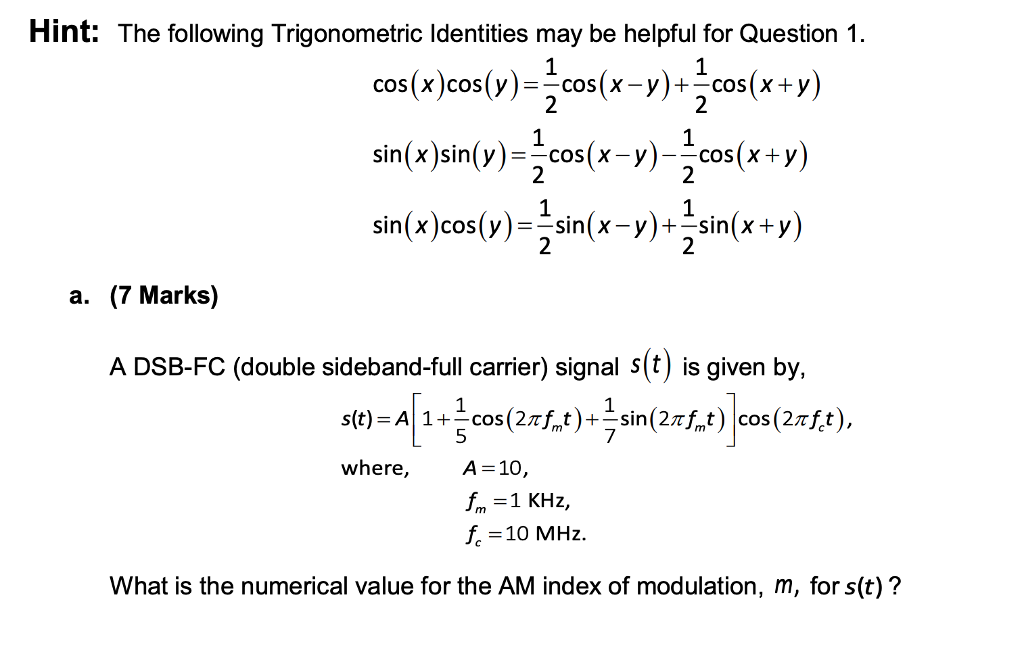
Solved Hint The following Trigonometric Identities may be
cos(x+y) = cos\\ x* cos\\ y - sin\\ x* sin\\ y cos(x-y) = cos\\ x*cos\\ y + sin \\ x*sin\\ y sin^2 x +cos^2\\ x= 1 cos(x+y) = cos\\ x* cos\\ y - sin\\ x* sin\\ y cos.
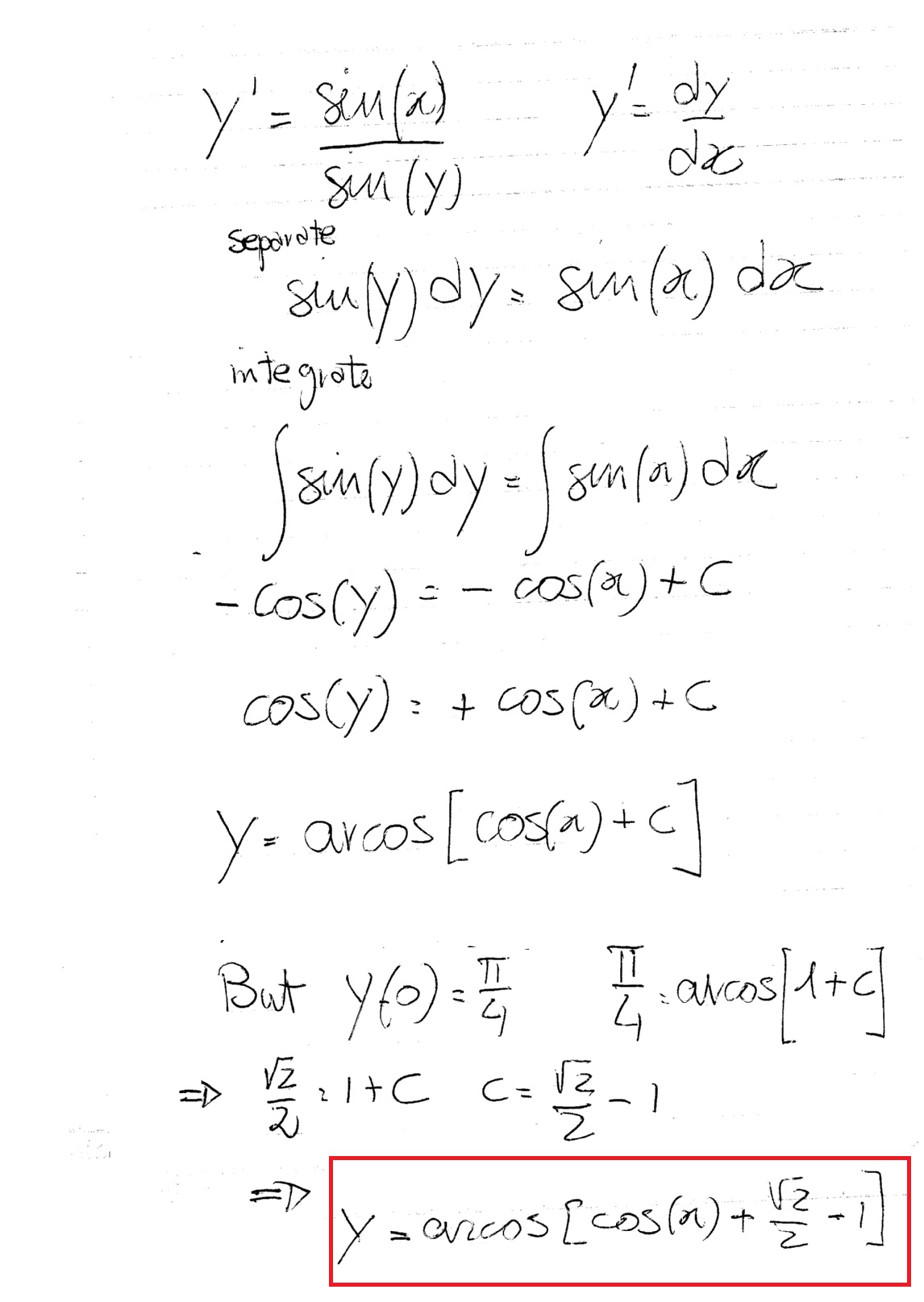
π/2sin^1x 278834π/2sin^1x Saesipjos5r8y
Learn Find Dy Dx Sin2y Cos X Y from a handpicked tutor in LIVE 1-to-1 classes Get Started Find dy/dx: sin 2 y + cos xy = κ Solution: A derivative helps us to know the changing relationship between two variables. Consider the independent variable 'x' and the dependent variable 'y'.
What is the general solution of this differential equation (𝑟 + sin 𝜃 − cos 𝜃) 𝑑𝑟 + 𝑟 (sin 𝜃
In this video we will discuss some question from chapter - 5 of ncert exemplar problems with more than one methods and also some short or useful methods for.
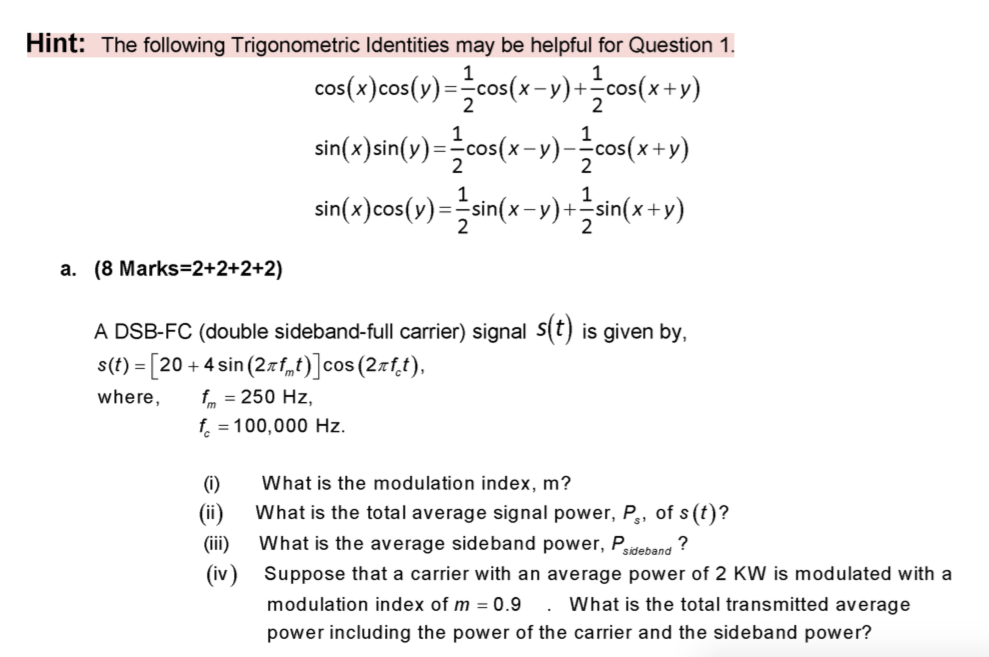
[最新] y'=sin(x y) cos(x y) 508659(xdyydx)y sin(y/x)=(ydx+xdy)x cos(y/x)
Trigonometric identities are equalities involving trigonometric functions. An example of a trigonometric identity is. \ [\sin^2 \theta + \cos^2 \theta = 1.\] In order to prove trigonometric identities, we generally use other known identities such as Pythagorean identities. Prove that \ ( (1 - \sin x) (1 +\csc x) =\cos x \cot x.\)
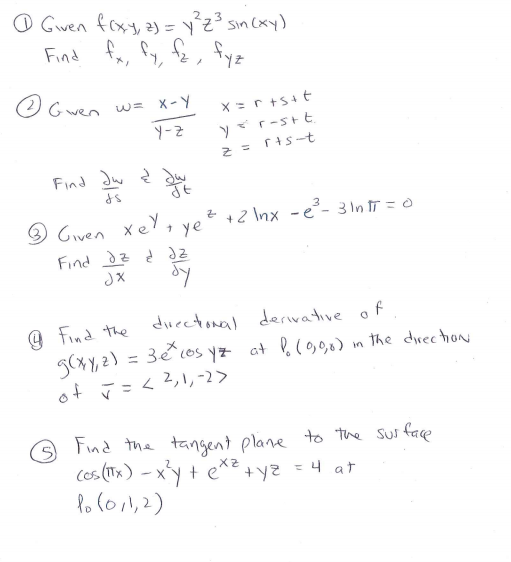
(1) Given f(x,y,z) = y^2 z^2 sin(xy) Find fx, fy,
Solution Verified by Toppr We have, sin2y+cosxy = k Differentiating both sides with respect to x, we obtain ⇒ d dx(sin2y)+ d dx(cosxy) = d(π) dx = 0. (1) Using chain rule, we obtain d dx(sin2y)= 2siny d dx(siny) = 2sinycosydy dx.. (2) and d dx(cosxy) =−sinxy d dx(xy) = −sinxy[y d dx(x)+xdy dx]

`sin^(2)y + cos xy = k` YouTube
Solve your math problems using our free math solver with step-by-step solutions. Our math solver supports basic math, pre-algebra, algebra, trigonometry, calculus and more.

Q.1 (2xy sin x)dx + (x cos y)dy= 0. q.2 (1+ 2x/ y2) dx 2y x2 y2dy = 0. q.3
Exercise : Find the gradient of. Answer. The directional derivative can also be generalized to functions of three variables. To determine a direction in three dimensions, a vector with three components is needed. This vector is a unit vector, and the components of the unit vector are called directional cosines.